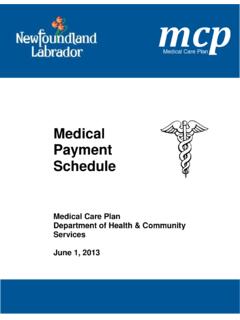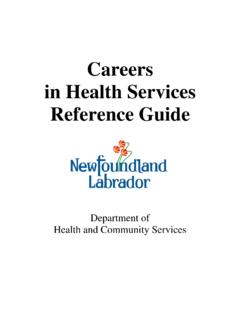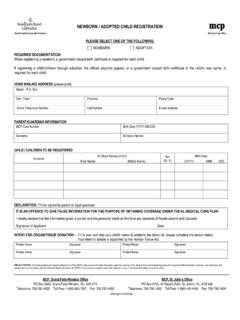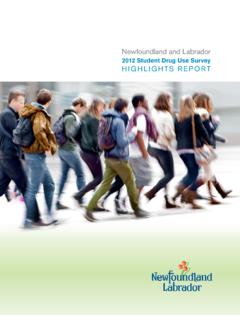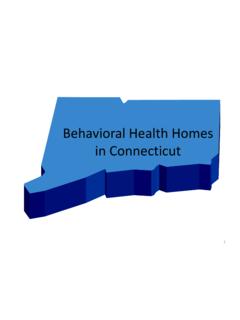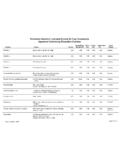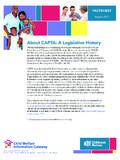Transcription of The Way Forward - health.gov.nl.ca
1 The Way ForwardReport Card: The First Six MonthsTowards recovery : The Mental Health and Addictions Action Plan for Newfoundland and Labrador1On June 27, 2017, the Government of Newfoundland and Labrador released Towards recovery : The Mental Health and Addictions Action Plan for Newfoundland and Labrador. The goal of the plan is to guide the implementation of the 54 recommendations outlined in Towards recovery : A Vision for a Renewed Mental Health and Addictions System for Newfoundland and Labrador, a report by the All-Party Committee on Mental Health and Addictions. The recommendations, and work carried out under the provincial mental health and addictions program fall under one of four pillars. These pillars set the policy direction for the transformation of the mental health and addictions system over the next five years: Promotion, Prevention and Early Intervention; Focusing on the Person; Improving Service Access, Collaboration and Continuity of Care; and Including All People Everywhere.
2 The next progress reports on the 54 recommendations will be in June 2018 and June ProgressOutcomes Achieved To DateTowards recovery : The Mental Health and Addictions Action Plan for Newfoundland and Labrador outlined 54 recommendations: 18 short-term recommendations to be substantially completed by March 2018 23 medium-term recommendations to be substantially completed by March 2021 13 long-term recommendations to be substantially completed by March 2022 CompleteIn ProgressTo be CommencedTo t a lShort-term513018 Medium-term022123 Long-term011213To t a l546354A summary of progress to date on the 54 recommendations is provided of AchievementsTo support the achievement of the 54 recommendations included in the Towards recovery Action Plan, seven project teams, with their own team leads and working groups, have been established and are actively advancing recommendations assigned to their respective teams.
3 The eighth project team, Indigenous Health, will begin meeting in winter 2018. Project teams include people and families with lived experience, policy makers, community, regional health authorities, Newfoundland Centre for Health Information, and government department representatives. There are over 200 individuals serving on teams and working groups under the Towards recovery Action Plan. Teams are also supported by a Towards recovery Project Management Team established in the Department of Health and Community Services. Since the release of the Towards recovery Action Plan, five recommendations have been completed: 1. On June 27, 2017, the Provincial Government released Towards recovery : The Mental Health and Addictions Action Plan for Newfoundland and Labrador.
4 The Plan sets out short, medium, and long-term goals to ensure implementation of all 54 recommendations contained in the All-Party Committee Report. (Recommendation 51)2. The Provincial Mental Health and Addictions Advisory Council s Mandate has been revised to include oversight for the implementation of the recommendations in the Towards recovery Action Plan. On October 31, 2017, project teams met with the Advisory Council and presented their approach to implementing the recommendations assigned to their respective teams. (Recommendation 54)3. As part of the provincial Personal Health Information Act Statutory Review, the Department of Health and Community Services recommended amendments to the Act to ensure family members and caregivers providing support to, and often living with, an individual with a mental illness or addiction , have access to the appropriate personal health information necessary to provide that support.
5 (Recommendation 28)4. Health-in-All-Policies is an approach to public policy that integrates health impact considerations into all Government policies, from infrastructure planning to labour market supports, to improve NL s health outcomes. A Health-in-All-Policies Unit has been established within Executive Council that will promote the consideration of health in policy development and build capacity within all government departments to identify the potential health impacts of their policies and programs. (Recommendation 48)35. The Premier s Task Force on Improving Educational Outcomes made several recommendations to the Departments of Health and Community Services and Education and Early Childhood Development in its report Now is the Time which will address reviewing the roles of guidance counsellors, educational psychologists, social workers and instructional resource teachers (IRTs) to determine the best way to meet the mental health and addictions needs of students.
6 The Departments of Education and Early Childhood Development and Health and Community Services are collaborating on addressing all recommendations in both reports that focus on the mental wellbeing of young people. (Recommendation 4)In addition to the above completed recommendations, significant efforts have also been made on a number of fronts: A public tender to renovate space at the Health Sciences Complex to facilitate the creation of a dedicated four-bed provincial intensive care inpatient unit for people with eating disorders and their families was issued in August 2017, and recruitment has begun for an interdisciplinary team to support the unit. A focus for the team will be to ensure a seamless continuum of services is in place for individuals and families as they transition through outpatient, inpatient and follow-up care.
7 Several mental health and addictions single-session walk-in clinics have been introduced at a number of sites in the province. Health-care professionals, including psychologists, nurses, addictions counselors and social workers offer single-session therapy services on a first-come, first-serve basis to those who feel they need to speak to someone right away. These clinics have been opened in Bonavista, Clarenville, Ferryland, Harbour Grace, Holyrood, Marystown, St. John s, Witless Bay, Whitbourne, and Labrador City. Twenty-five RNC police officers have been trained as trainers in mental health crisis intervention so that police throughout the province may be trained to team with mental health staff and offer community based crisis response.
8 These teams will include a mental health nurse or social worker and a plain clothes police officer working and traveling together in an unmarked car to respond to people in crisis, with the goal of providing effective crisis intervention services in a person s home in a compassionate, safe and non-stigmatizing manner. Mental health staff have been hired for these mobile crisis response teams in St. John s and Lab West. Teams in other regions will follow. A number of clinical staff in all four regional health authorities have been trained to provide online cognitive behavioral therapy through Therapist Assisted Online (TAO), which will increase access to this gold standard treatment for depression and anxiety. 4 In November 2017, 15 people with either lived experience of mental illness or addiction or experience as a family member were appointed to the new recovery Council, which will guide the involvement of people with lived experience and family members in the implementation of the Towards recovery recommendations.
9 All project teams will provide updates on their progress to the Advisory Council and the recovery Council, which report to the Minister of Health and Community Services. They will advise the Minister from their perspective on the progress made. Guidelines for inclusion have been developed that will be applied to all mental health and addictions services during system transformation. These guidelines will be used to facilitate the development of a government-wide inclusion policy to ensure the diverse needs of all populations are recognized and addressed. Left to right: Louise Bradley, President and CEO of the Mental Health Commission of Canada, Colleen Simms, Director of Mental Health and Addictions, Health and Community Services, Joanne Thompson, Executive Director of the Gathering Place, and John Abbott, Deputy Minister of Health and Community on each of the 54 recommendations, numbered and aligned by pillar, is provided , Prevention and Early InterventionS h o r t-te r m5 Encourage post-secondary institutions to provide evidence-based mental health promotion, prevention and early intervention programs for students during orientation and at various points throughout their community leaders to form coalitions to promote mental wellness.
10 Encourage people to seek help and prevent the Residential Tenancies Act to provide authority to effectively deal with inadequate rental properties, including boarding and rooming specific provincial Implementation Plans for: Alcohol abuse, which would include a focus on promotion and prevention, as well as screening, brief intervention and referral; and, Suicide prevention, with the aim of reducing stigma and empowering communities to build resilience and all young families with access to programs that focus on: Parental coping skills to increase resiliency; Parenting skills and child development; and, Social and emotional competence of and implement a comprehensive school health and wellness framework that includes evidence-based mental health promotion, prevention and integrated, early intervention programs in schools, which: Focus on social and emotional learning; Are embedded in curriculum at every grade; Help students identify, understand and deal effectively with stress and anxiety.



